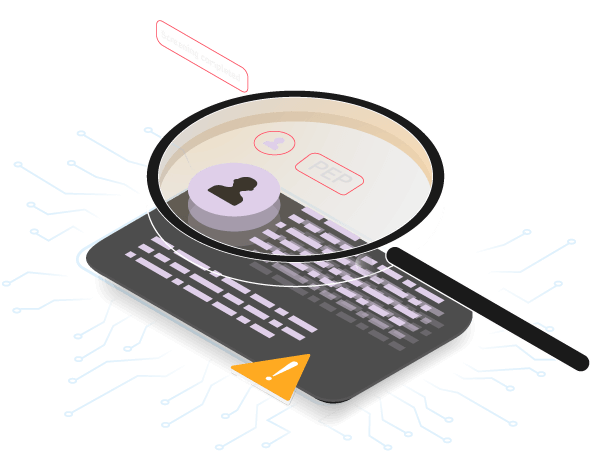Denmark is a wealthy Nordic country with a strong and diverse business landscape. In recent years, Denmark’s economic reputation has been damaged by high profile money laundering incidents, including a banking scandal which involved suspicious transactions amounting to around €200 billion flowing through some of the eastern European branches of a Danish bank. The scandal led to criminal charges, prosecutions, and financial penalties of over $2 billion.
In the wake of the incident, Danish authorities are placing a greater focus on AML compliance, which means that firms operating in Denmark must understand how to meet their anti-money laundering (AML) and counter-financing of terrorism (CFT) obligations in the ongoing fight against global financial crime. Given the prospect of significant fines and reputational damage, let’s take a closer look at Denmark’s AML landscape, and how firms should approach regulatory compliance.
Denmark’s AML Regulator: Finanstilsynet
Denmark’s financial regulator is the Financial Supervisory Authority (FSA), known in Danish as Finanstilsynet. The Danish government established the FSA in 1988, merging the Danish Supervisory Authority for Banks and Savings Banks and the Insurance Supervisory Authority. The FSA’s stated mission is to provide “financial stability and confidence in financial undertakings” in Denmark, and as such it is responsible for supervising banks and financial institutions, including insurance companies, pension funds, investment funds, and securities brokers.
The Danish FSA works to ensure that Danish firms comply with the country’s AML/CFT regulations, setting out rules and best practices, assisting the Danish government in developing new AML/CFT legislation, and issuing periodic guidance and best practice information. As Denmark’s national regulator, the FSA also works with international counterparts to assist in cross-border AML/CFT investigations and contribute to the global fight against money laundering. Banks and other financial service providers that wish to operate in Denmark must register with the FSA.
Denmark AML Regulations
The main article of AML legislation in Denmark is the Act on Preventive Measures Against Money Laundering and the Financing of Terrorism, also known as the Money Laundering Act. Applicable to all financial institutions in Denmark, the Money Laundering Act requires financial institutions to develop and implement a risk-based AML/CFT compliance solution, including appropriate customer due diligence (CDD) and screening measures. Firms must also appoint an AML Officer who is responsible for overseeing their organisation’s compliance solution.
EU Anti-Money Laundering Directives: Denmark is a member of the European Union and so must transcribe the EU’s anti-money laundering directives (AMLD) in domestic legislation. Accordingly, the Danish government updates the Money Laundering Act to meet AMLD requirements, and has done so most recently for the Fourth and Fifth Anti-Money Laundering Directives (4AMLD and 5AMLD).
Due to its constitutional agreements with the EU, as of May 2023, Denmark has not implemented the EU’s Sixth Anti-Money Laundering Directive (6AMLD). The directive came into effect across the rest of the EU on 3 June 2021.
Recent AML initiatives: Denmark’s government has announced a nationwide crackdown on money laundering, and released a 5 pillar AML/CFT strategy that will run until 2025. The strategy focuses on areas of particularly high AML risk, including high value goods, money transfer companies, cryptocurrencies, and the gambling industry. As part of the strategy, the Danish police has established a new unit dedicated to tackling money laundering.
While Denmark has not yet committed to any regulatory steps, the FSA has indicated that it will consider AML/CFT measures for virtual assets in the future. The EU has proposed a landmark regulation known as Markets in Crypto Assets (MiCA) which will come into effect in 2024 and introduce new AML/CFT compliance obligations for certain types of virtual asset.The Danish government has not indicated that it will implement MiCA but may do so as part of its regulatory efforts to address virtual asset money laundering risks.
Denmark AML Regulations: How to Comply
Following EU and Financial Action Task Force (FATF) guidance, firms in Denmark must implement risk-based AML/CFT solutions that reflect the level of criminal risk that they face. An effective risk-based solution should include the following measures:
- Customer due diligence: Firms must identify their customers in order to build accurate risk profiles. Higher risk customers should be subject to enhanced due diligence, and corporate entities should be subject to ultimate beneficial ownership (UBO) checks.
- Transaction screening: Firms must screen customer transactions for signs of money laundering and other financial crimes. Red flag characteristics may include transactions that involve high risk counterparties or accounts in high risk jurisdictions.
- Sanctions and watchlists: Firms must identify high risk customers by screening them, on an ongoing basis against the relevant international sanctions and watchlists.
Adverse media screening in Denmark: One of the most effective ways to establish true AML risk is to screen against adverse media or negative news, which may reveal a customer’s involvement in financial crime, or designation on a watchlist, before that information is confirmed officially.
Finanstilsynet’s risk management guidelines state, “It is essential that financial institutions include media screening of customers and beneficial owners in customer due diligence.”
Firms should implement adverse media screening technology capable of searching for customer names in Denmark and around the world, gathering as much data as possible while minimising false positives and administrative noise. Adverse media searches should include established news platforms, websites, blogs, forums, and social media posts.
The Importance of Screening Technology
Ripjar’s Labyrinth Screening platform is designed to help firms meet their compliance obligations in crowded and complex regulatory environments. Powered by cutting-edge AI and machine learning software, Labyrinth enables global customer screening of thousands of news sources, sanctions lists, and watch lists, and delivers accurate, actionable data in real time. The Labyrinth search algorithm is capable of extracting the most relevant information from structured and unstructured data, enabling firms to build effective customer risk profiles in seconds, and react to emerging risks as soon as possible.









